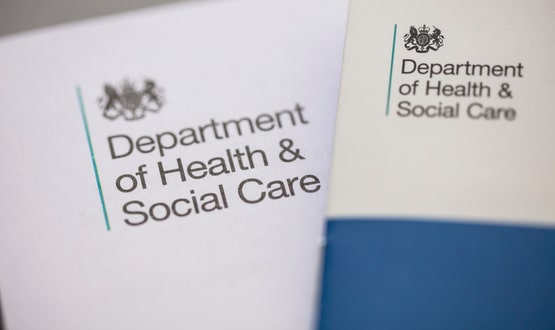NAO gives positive account of NHS CfH
- 16 June 2006
According to the eagerly-awaited National Audit Office report published today the DH and NHS Connecting for Health, the agency responsible for the NHS IT project, have “made substantial progress” but the project remains very much a work in progress and it is too early to judge success.
The report confirms that areas of the programme are running late including Choose and Book already a year overdue, and the NHS Care Records Service so far two years late.
For the first time the NAO provides an official forecast of the total cost of the NHS National Programme for IT, predicting the figure to be £12.4bn. This is almost double the original £6.2bn of national contracts awarded but considerably less than the £20bn figure recently cited by health minister, Lord Warner.
Chris Shapcott who lead the NAO review team explained that the £12.4bn figure comprised “the total contracts latest estimate is £6.8bn, slightly higher than the original £6.2bn".
The other elements were £382m for new projects, £239m on additional services and £1.9bn on central CfH costs. A further £337m will go on replacing NHS contracts that will expire before the end of the ten year period to 2014. Local NHS It expenditure is put at £3.4bn.
Lord Warner said: “The NAO has confirmed that the cost of the project has not over-run. It also makes clear that, as intended, some of the NHS’ existing spending on IT will be needed to ensure effective implementation of new computer systems in trusts.”
Speaking at a DH press conference, Richard Granger, NHS CfH chief executive, said that much had been achieved, some systems even delivered ahead of time, but in other areas such as hospital systems there were delays. “The contractors do have difficulties. Computerising the NHS is something that has proven elusive. But every week major systems now go live into large hospitals, GP practices and community providers.”
He added: “I know there is frustration out there in the NHS, and I share it.” On fining suppliers for late delivery he said: “There is a balance to penalising suppliers and paying them for work they have done. We could penalise suppliers more but personally I don’t want to at the moment.”
Although the largely positive report will make welcome reading to the department, it also identifies specific points of concern where action is required to ensure the future success of the project.
Sir John Bourn, head of the NAO said: “Substantial progress has been made with the National Programme for IT. The Programme promises to revolutionise the way in the NHS uses information to improve services and patient care. But significant challenges remain for the Department and NHS Connecting for Health.”
Three specific challenges are identified by the report. The first is “Ensuring that the IT suppliers continue to deliver systems that meet the needs of the NHS, and to agreed timescales without further slippage”.
The NAO report states that the NHS Care Records Service (CRS) is currently two years late, but reports that NHS CfH says it will still deliver the project across the NHS by 2010.
At the DH press conference a bullish Lord Warner told E-Health Insider that both the summary national part of CRS and the detailed local clinical record components of CRS would be fully delivered by 2010. “I have no doubts in my mind whatsoever.”
Referring to delays in other parts of the programme the health minister said, “Some parts of the programme are behind schedule due to the complexity of the task and due to the ongoing debate in the medical community about the contents of electronic care records.”
The second and third implementation challenges identified by the NAO are: ensuring that NHS organisations can and do fully play their part in implementing the programme’s systems and winning the support of NHS staff and public in making the best use of the systems to improve services.
The report largely confines itself to the cost, procurement and contract structures of the NHS IT programme, together with an overview of progress to date against original plans.
However, NSO head Sir John Bourn says: "The main implementation phase of the programme and the realisation of benefits are mainly a matter for the future and it will therefore be some time before it is possible to fully assess the value for money of the programme.”
On the procurement approach and structure of the contracts negotiated by NHS CfH the NAO is fulsome in its praise, though rather more circumspect on the delays in delivery against some of the major contracts.
“Procurement of the contracts was completed commendably quickly.” All completed within a year between February 2003 and February 2004, most in less than 10 months. The NAO notes that this compares to an average of 27 months for a single PFI contract.
The NAO also states that CfH bought systems at fixed competitive price, transferring financial and delivery risk to suppliers, and it does not pay suppliers until services are delivered and working. “So although there have been delays in delivering the NHS Care Records Service, the suppliers have borne the cost of overcoming difficulties in delivering the software and not the taxpayer.”
The report notes that delays in delivery of software to trusts by some the sub-contractors has resulted in a considerable underspend for the programme as a whole.
By maintaining competitive bidding down to the contract award CfH was able to “achieve significant price reductions from the eight prime contracts”. It says that the difference between initial and final bids totalled £6.8bn.
Referring to savings that the £12.4bn investment should deliver, the NAO notes that the main aim of the programme was to improve services rather than reduce costs. “As a consequence it was not demonstrated that the financial value of the benefits exceeds the costs of the programme.”
Granger said that once trusts make the initial local investment in implementing systems they will see benefit and savings. “The trusts themselves save money."
This was not the position of Lord Warner who boldly said on costs: "But I would stake my reputation that in the long term, this project will pay for itself."
Link
NAO report on the National Programme for IT




